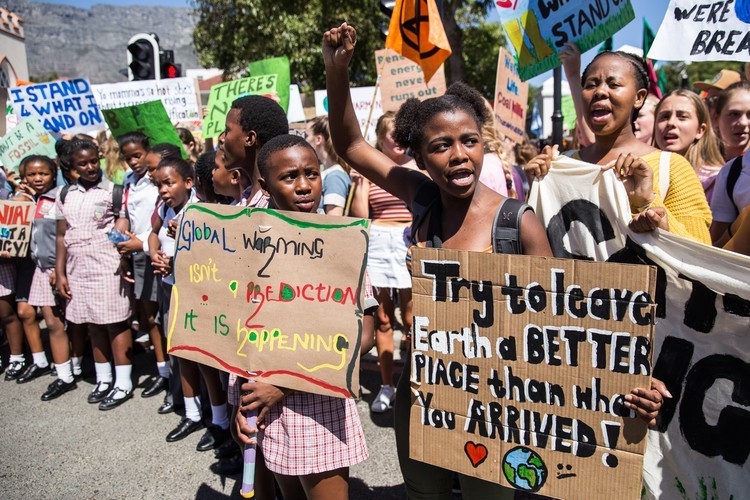By Lisa Vives, Global Information Network
NEW YORK (IDN) — Water stress, withering droughts and devastating floods are hitting African communities, economies and ecosystems hard. Rainfall patterns are disrupted, glaciers are disappearing and key lakes are shrinking.
In South Africa, the extreme rainfall that triggered one of the country’s deadliest disasters of this century was made more intense and more likely because of climate change.
More than 400 people died as a result of the floods, which also destroyed more than 12,000 houses and forced an estimated 40,000 people from their homes.
So, at a time when the impacts of climate change are breaking records around the world, Africans must fight for their survival, although they are hardly responsible for the pollution.
This year, finance for the urgent climate change needs of Africa and other developing areas will top the agenda of the UN Climate Change Conference—also known as COP27, to be held in the resort town of Sharm el Shaikh, Egypt, from November 6 to 18.
Many frontline communities are already engaged in adapting to climate change and finding solutions—including Egyptians preserving their traditional villages by the solarization of their electricity and farmers in Algeria learning new techniques to reduce the encroachment of sand and desertification. They offer hope that, with help, people can successfully lessen the impact of climate disaster.
However, these heroic efforts are often undermined by a system that prioritizes profit over people and the planet, a system rooted in racism, patriarchy, extractivism, consumerism, exploitation, and disempowerment. Rich countries have squeezed huge profits out of the fossil fuel economy while setting the globe on a path of dependence on fossil fuels.
Rich countries must meet and expand climate pledges, and poor countries should be able to develop economically while receiving more funds to adapt to the impact of climate change.
A communique released after a three-day forum for finance, economy and environment ministers said Africa benefited from less than 5.5% of global climate financing despite having a low carbon footprint and suffering disproportionately from climate change.
It urged rich countries to meet and expand climate pledges and said poor countries should be able to develop economically while receiving more funds to adapt to the impact of climate change.
Kevin Chika Urama, chief economist at the African Development Bank, said Africa faced a climate financing gap of about $108 billion each year.
The “climate finance structure today is actually biased against climate-vulnerable countries,” he said. “The more vulnerable you are the less climate finance you receive.” [IDN-InDepthNews — 31 October 2022]
Photo: Grade 11 learner Zenile Ngcame of Masiphumelele High School raises her fist during a protest for action against climate change outside Parliament in Cape Town. Photo: Ashraf Hendricks
IDN is the flagship agency of the Non-profit International Press Syndicate.
This article is published under the Creative Commons Attribution 4.0 International licence. You are free to share, remix, tweak and build upon it non-commercially. Please give due credit.

